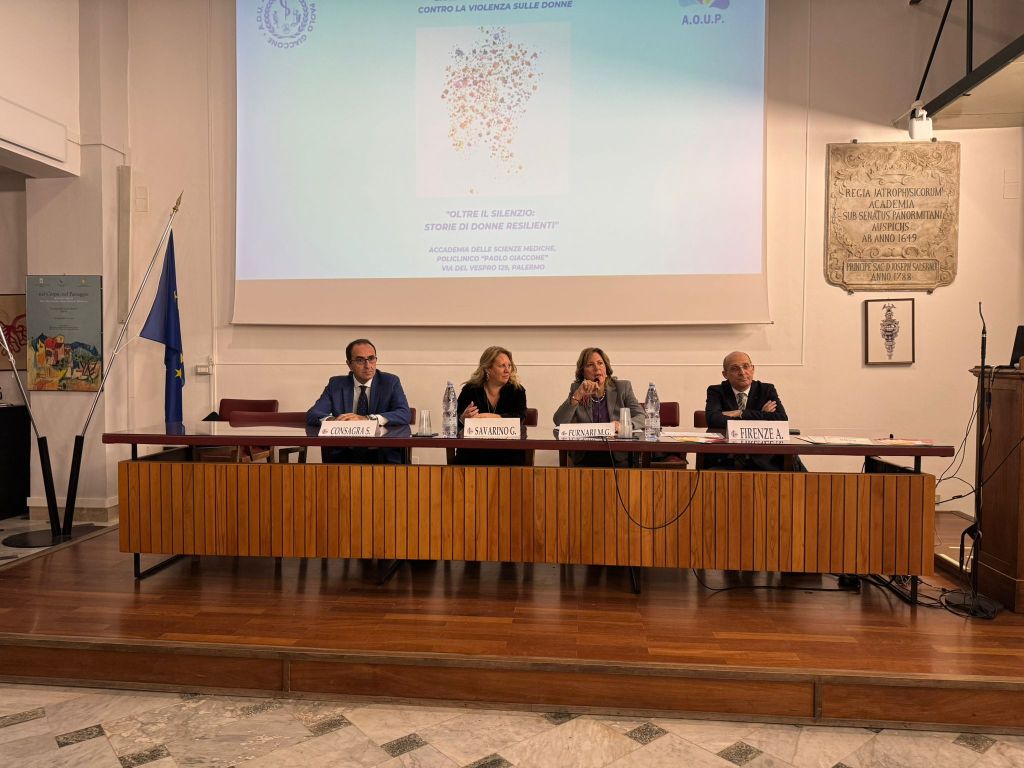PALERMO (ITALPRESS) – The International Day Against Violence Against Women represents a moment of collective reflection and mobilization against one of the most serious violations of human rights. For this reason, the conference “Beyond Silence: stories of resilient women” was organized by the General Directorate of the Palermo Polyclinic. Every year, thousands of women around the world suffer physical, psychological, sexual and economic violence, often perpetrated in family or relationship contexts, and all too often resulting in tragic consequences. “It’s clear that a company like ours, a University Polyclinic, is committed to this issue, in that we offer an emergency department that is absolutely complete to accommodate women with these problems, and that is up to the task of intercepting even problems where they are not overtly reported,” explained the general director of the Polyclinic, Maria Grazia Furnari. “We have an excellent forensic medicine department that serves not only the women who come to this hospital, but is also a point of reference for other companies in the area. We give answers, not only welfare but that have social and socio-psychological connotations because they are fundamental.” Then on the numbers of violence: “They are certainly high compared to other years as well,” Furnari continued. “What we fear, however, is that they are only the tip of the iceberg, because there are several cases that are not reported at all. The initiatives we are putting in place basically are to open and activate an operational unit that will deal precisely with psychology and social welfare support. It will be a new task unit in which we will put in not only psychologists but also social workers and support staff. Psychologists will have to be in all departments, besides the emergency room of course. We believe there is a real need for support that is beyond medical care.” Despite the efforts of institutions, international organizations and civil society, this social scourge continues to manifest itself in different forms. “The initiative of the Polyclinic,” stressed Regional Health Councillor Giovanna Volo, “is very important because it wants to bring together, starting from today, realities that are not only health care, understood as care of the person in his or her physical problems, but care of people in their socio-mental discomforts, let’s call them that, if we can use this term. The phenomenon to which we are giving a lot of attention is that of feminicides, but certainly behind it is the fruit of a discomfort that involves so much of the population, in particular today we realize is the youth, in the sense that the average age of those who commit such serious crimes as violence against women, but not only against women, is increasingly lower. And so we have to be concerned about that, because our actions have to be toward the pursuit of people’s well-being. People are well when they are well not only physically but also and psychologically.” A particularly significant moment of the conference was the testimony of some cases of women victims of violence and the experiences of the Associations. “The initiative is certainly significant and is part of the many initiatives that will be done on this international day against women’s violence,” said the rector of the University of Palermo, Massimo Midiri. “Certainly it should be emphasized that spot or isolated initiatives and remembering this phenomenon only one day a year are not enough. It must be the commitment of the institutions to get this message across, which must become a sort of cultural engine. We as a university have even done this by creating a pro-directorate for inclusion and gender equality that curates and analyzes any phenomenon that could create gender inequality or violence against women. We have put the female lawyer who treats any aggressive attitude toward students, female staff, administrative or faculty. We have to create a whole series of elements that make this issue a cultural issue: this has to be taught, it has to be told to young people, it has to create a mentality and not imagine only the celebratory aspect that is certainly not what is useful for the resolution of this issue.” Present were, among others, the mayor of Palermo, Roberto Lagalla, the health director of the Policlinico, Alberto Firenze and the prefect of Palermo, Massimo Mariani, the Director General DPS Regional Health Department, Salvatore Iacolino and the Regional Councillor for Land and Environment, Giusy Savarino.
– photo xd6/Italpress -(ITALPRESS).

